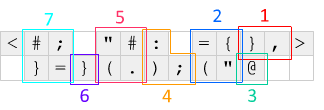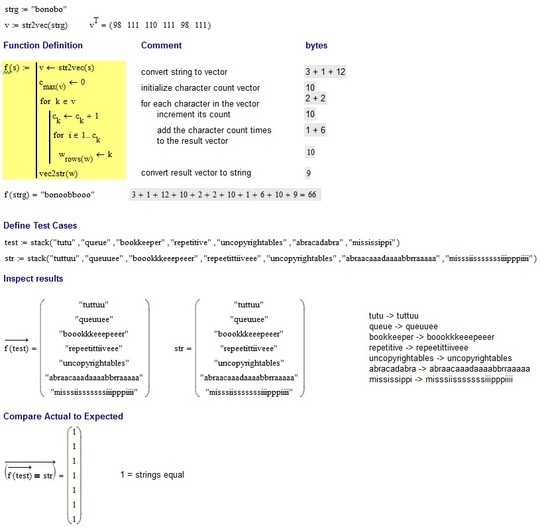Swift, 134 bytes
var c = NSCountedSet(),n = ""
i.characters.forEach({var s = String($0);c.addObject(s);for _ in 0..<c.countForObject(s){n.append($0)}})
Assumes Foundation has been implicitly imported. i is the input of type String, n is the output of type String.
I'm falling back on Foundation classes here as NSCountedSet gives the the character count lookup behavior we want. The problem with mixing Swift and Objective-C types is that Swift structs do not conform to NSObjectProtocol. We see this issue when trying to store a Swift Character (String.CharacterView) in an NSCountedSet, which is expecting objects of type AnyObject (or NSObject). I lose around 17 bytes having to create a String from each Character in the input string.
I also lose some bytes having to create a for loop to append the new characters based on their count in the set. I can't use forEach here since the return type of countForObject is an Int, not a collection type. There is room for improvement here.
Swift String types are immutable, so I can't explicitly mutate the input. There may be room for improvement by using an NSMutableString, but the characters lost by explicitly declaring the input of that type and calling the appendString method may add more characters to the program.


21Well then... rip Pyth. – Adnan – 2016-04-04T14:16:17.270
2This site is becoming a competition for the best general-purpose golfing language... not that that's a bad thing. – Shelvacu – 2016-04-04T23:34:52.083
8@shelvacu The latter is debatable, 2 friends I've shown PPCG to have said something along the lines of "all the top answers are just using golf languages" as a first impression. – Insane – 2016-04-05T06:37:20.673
@Insane there is/ are. Code golf is a pretty common thing. So languages are put together for that purpose, exclusively. – Evan Carslake – 2016-04-06T23:53:04.590
How does this.... work? – Erik the Outgolfer – 2016-10-04T15:22:50.330